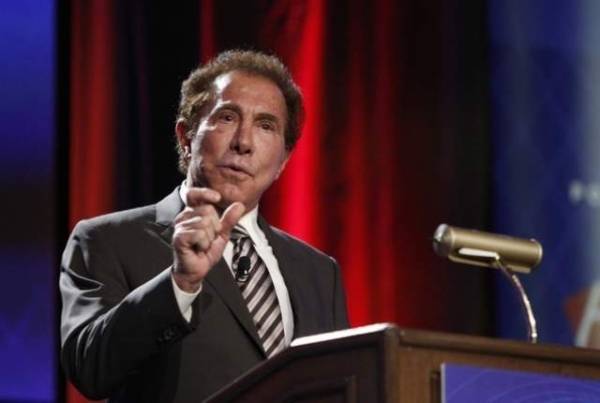Second shareholder lawsuit filed against Wynn Resorts, directors

In the wake of sexual harassment allegations against former Chairman and CEO Steve Wynn, a second group of shareholders filed a lawsuit Thursday against Wynn Resorts Ltd. and its board of directors.
In a 23-page shareholder derivative complaint, the Operating Engineers Construction Industry and Miscellaneous Pension Fund seeks unspecified compensation for breach of fiduciary duty.
Wynn Resorts “permitted countless acts of sexual harassment, sexual coercion, and other misconduct to take place over a period of decades,” the lawsuit filed by the Las Vegas law firm Eglet Prince states, “despite having received information that put them on notice of Mr. Wynn’s terrorizing of female employees. The director defendants’ breaches constituted intentional misconduct and involved knowing violations of the law.”
Last week, the Norfolk County Retirement System of Massachusetts filed a similar complaint in Clark County District Court.
This week’s complaint points to news reports, initiated by an in-depth Wall Street Journal story and followed by the Las Vegas Review-Journal and others, about allegations that Wynn “preyed on vulnerable women throughout the company.”
The company “remained defiant” but formed a special committee to investigate the allegations, and earlier this month the Wynn board hired a law firm to launch an independent investigation, according to the lawsuit. But the firm was fired after the CEO resigned.
“The special committee has provided almost no details about what and who it is investigating, and how any such investigation would be performed,” the lawsuit states. That group hired another law firm with close ties to Wynn Resorts.
Officials with the company could not be reached for comment Thursday, but they declined to comment on last week’s lawsuit.
Wynn has denied accusations of harassment, citing “an avalanche of negative publicity.”
A shareholder derivative lawsuit, brought by a shareholder on behalf of a corporation, generally is filed when the corporation has a valid cause of action but has refused to use it, according to the Legal Information Institute at Cornell University.
Contact David Ferrara at dferrara@reviewjournal.com or 702-380-1039. Follow @randompoker on Twitter.